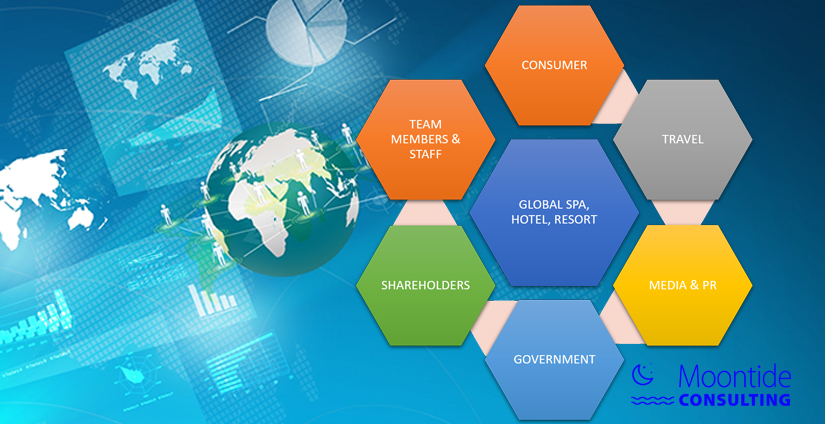Why Coronavirus Should Impact the Way Spas Do Business – Part 1

“Introspection is always retrospection.” – Jean-Paul Sartre
In the past several weeks the world has been hit with a pandemic, the magnitude of which has not been experienced before in our lifetime. Coronavirus (COVID-19) is causing financial strife across most industries and currently, there is no end in sight.
Particularly hard hit has been the global spa and hospitality industry. According to Chip Rodgers, President at the American Hotel and Lodging Association, “The coronavirus will have a more severe economic impact on the hotel industry than 9/11 and the 2008 recession combined”.
Overall, the hotel industry expects 4 million jobs to be lost even if occupancy rates climb up to 30 or 35 percent by the end of the year.
A projected $355 billion decline in travel spending — transportation, lodging, retail, attractions, and restaurants will deliver an $809 million hit to the U.S. economy and cost 4.6 million travel-related jobs, says the U.S. Travel Association.

Global spas are part of a powerful eco-system
Global spas are at the center of an eco-system that includes Consumers, the Travel Industry, Media and Public Relations, Government, Shareholders, and internal Team Members and Staff. The best strategies will factor each of these elements into the mission and goals of the spa.
Rupert Schmid Co-CEO of Biologique Recherche stated-
“Big exogenous shocks and personal illnesses lend themselves to personal reflection and deep introspection. Being exposed to fragility often leads to more empathy, to a greater ability to co-operate and to understand the need of others”.
When this is all over, said Rupert, we’ll be more aware of three things: (1) the need to co-operate, (2) the necessity to substitute faceless consumerism with human interaction and (3) the fact that things can go wrong very fast.
Jeremy McCarthy, Group Director of Spa & Wellness at Mandarin Oriental Hotel Group shared an insightful piece on “Practical Optimism for Difficult Times”. This means accepting the difficult reality, while simultaneously imagining how things can get better. It’s a great perspective.
I spoke with an award-winning spa in America that continues to thrive even during the coronavirus crisis. Their secret sauce?
E-commerce is currently their primary revenue stream. In the first two weeks after coronavirus hit the US, their online product sales tripled. Gift certificate sales remain robust although unlike in the past they are designated for products rather than services.
This means staff will be compensated during this forced layoff. The spa continues to engage daily with clients and fans primarily on Instagram, posting pictures of their activities at home and how they’re filling their free time trying new skin and body treatments. The spa optimistically began accepting bookings this week beginning March 27. They are already booked 30 days in advance.
Another top-flight spa is also expanding its online game. They are providing complimentary virtual consultations and virtual facials. To help boost conversions the spa is providing free shipping on all of their products.
There are some critical questions C-suite executives and global spa managers should be answering during this downtime. These include:
“How do we get to the level of this spa from where we are now?”
“How can we expand our reach to new generations of travelers?”
“What are we doing to make internal improvements in our systems and processes so that we can operate more efficiently and profitably?”
At Moontide Consulting we’ve been discussing these ideas for years with some of the top spas in the world.
In Part Two of this 4-part weekly blog series, we will discuss the importance of engagement. This means connecting and communicating with guests, therapists, and management to create a crisis-resistant revenue stream.
Be sure to contact us directly by joining our mailing list or send us an email to schedule a complimentary discussion about your unique situation.






